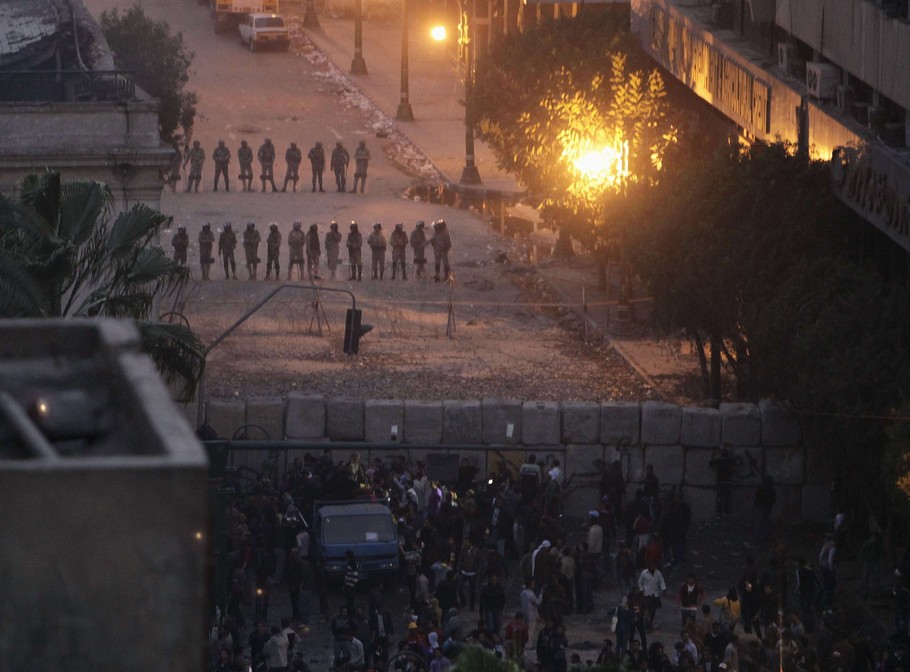
Troops stand guard behind a wall they built to separate them from protesters, during clashes between troops and protesters near the cabinet offices, in Cairo December 18, 2011. Protesters and security forces fought in Cairo on Sunday, the third day of clashes that have killed 10 people and exposed rifts over the army's role as it manages Egypt's promised transition from military to civilian rule. REUTERS/Asmaa Waguih
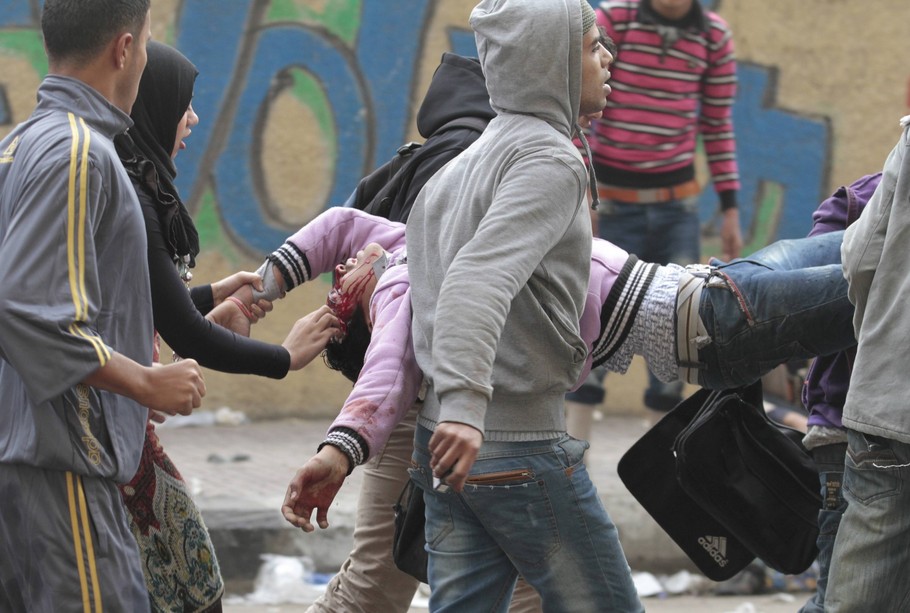
An injured protester receives help from fellow protesters during clashes with security forces near the cabinet in Cairo December 18, 2011. Protesters and security forces fought in Cairo on Sunday, the third day of clashes that have killed 10 people and exposed rifts over the army's role as it manages Egypt's promised transition from military to civilian rule. REUTERS/Mohamed Abd El-Ghany
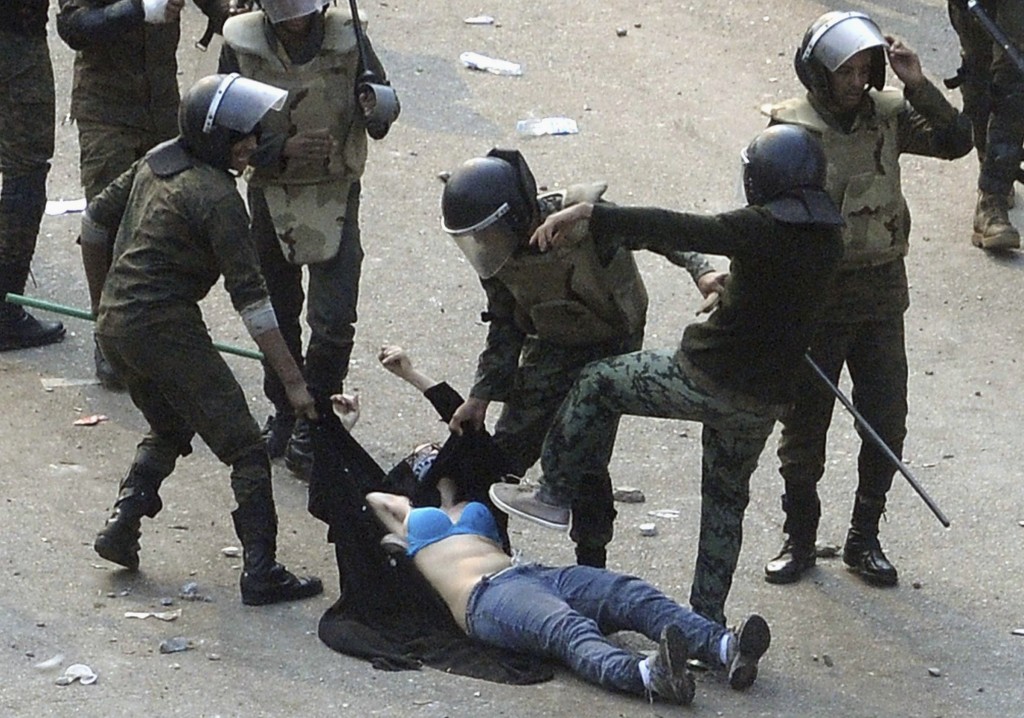
Egyptian army soldiers arrest a female protester during clashes at Tahrir Square in Cairo December 17, 2011. Soldiers beat demonstrators with batons in Cairo's Tahrir Square on Saturday in a second day of clashes that have killed nine people and wounded more than 300, marring the first free election most Egyptians can remember. REUTERS/Stringer
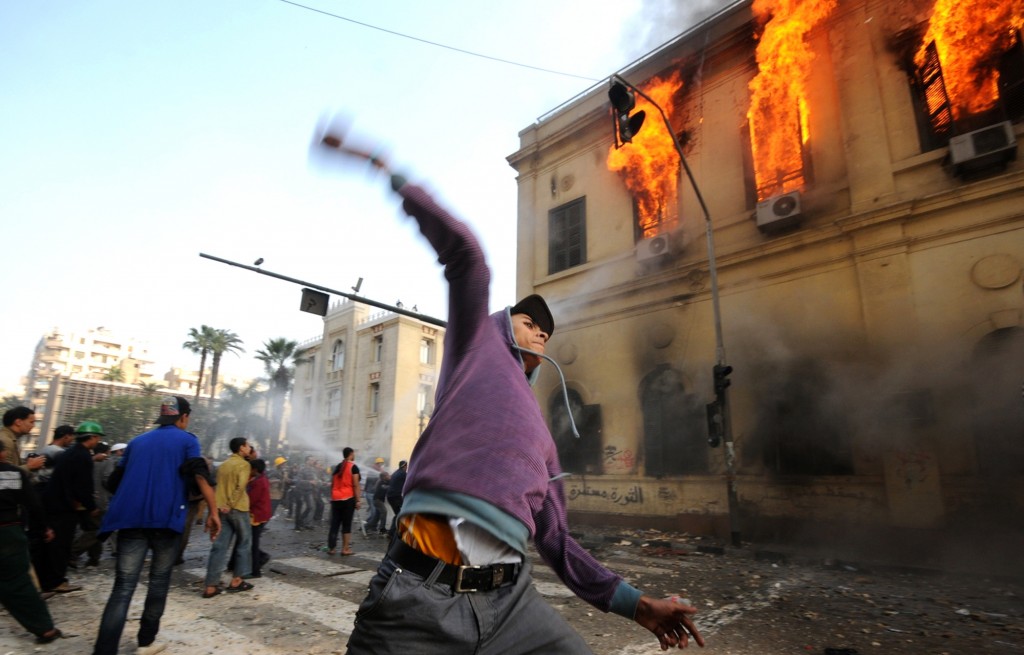
An Egyptian protester throws a stone toward soldiers as a building burns during clashes near Tahrir Square, in Cairo, Saturday, Dec. 17, 2011. Hundreds of Egyptian soldiers swept into Cairo's Tahrir Square on Saturday, chasing protesters and beating them to the ground with sticks and tossing journalists' TV cameras off of balconies in the second day of a violent crackdown on anti-military protesters that has left nine dead and hundreds injured. (AP Photo/Ahmad Hammad)
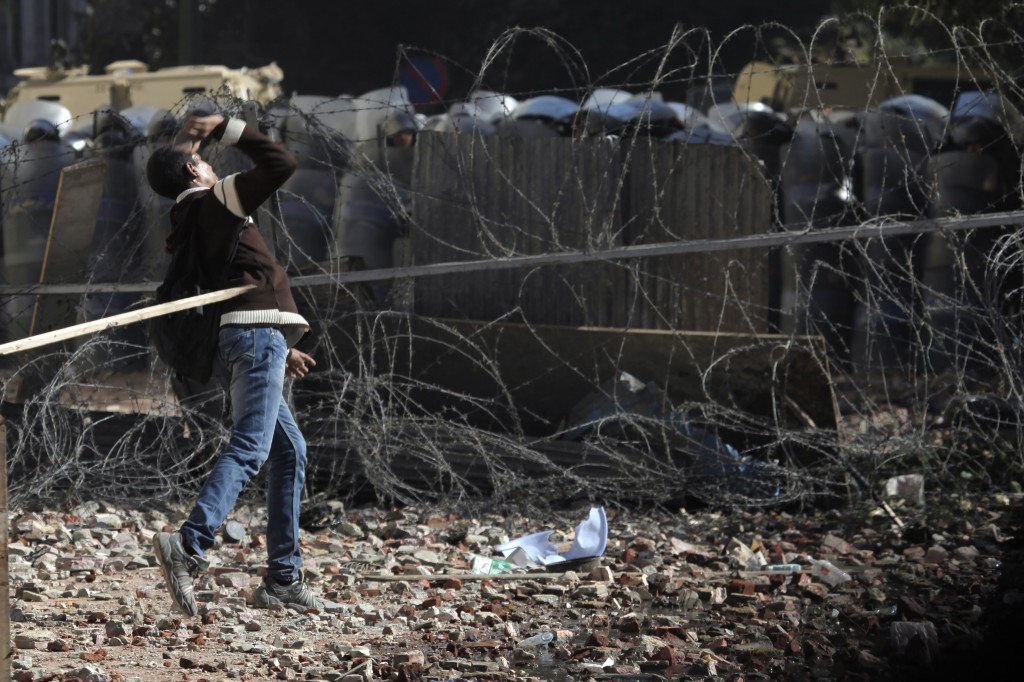
An Egyptian protester throws stones toward army soldiers during clashes near Tahrir Square in Cairo, Sunday, Dec. 18, 2011. Egypt's military sought to isolate pro-democracy activists protesting against their rule, depicting them as conspirators and vandals, as troops and protesters clashed for a third straight day, pelting each other with stones near parliament in the heart of the capital. (AP Photo/Nasser Nasser)
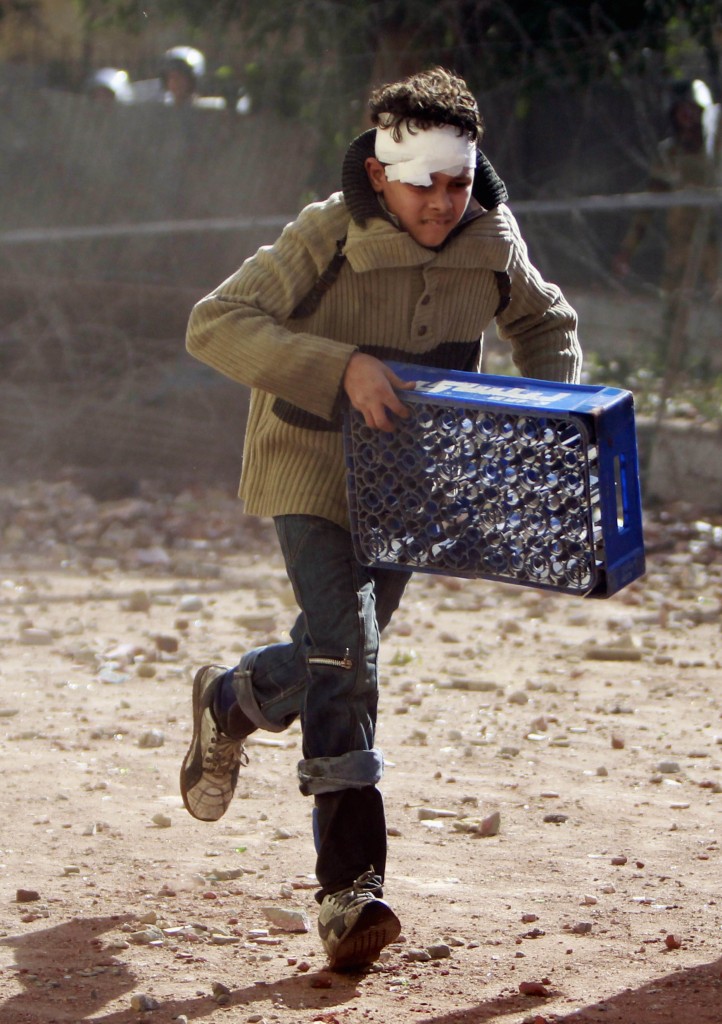
A child protester runs during clashes with army soldiers next to a building near cabinet offices near Tahrir Square in Cairo December 18, 2011. Protesters and security forces fought in Cairo on Sunday, the third day of clashes that have killed 10 people and exposed rifts over the army's role as it manages Egypt's promised transition from military to civilian rule. REUTERS/Amr Abdallah Dalsh
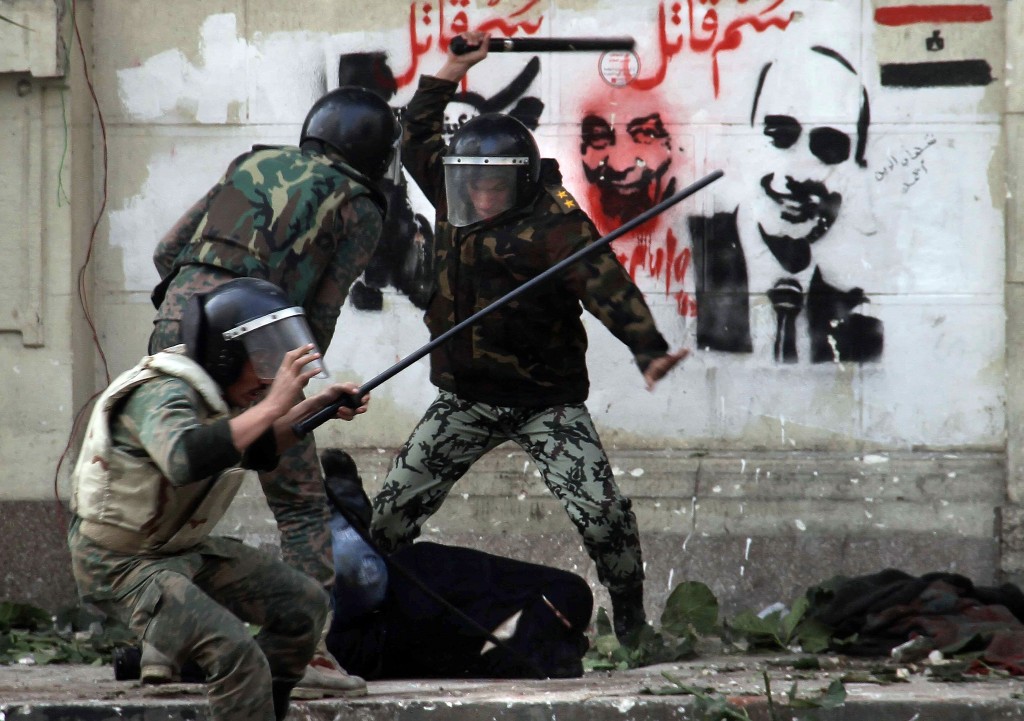
Egyptian army soldiers beat a protester wearing a Niqab, an Islamic veil, during clashes near Cairo's downtown Tahrir Square, Egypt, Friday, Dec. 16, 2011. Activists say the clashes began after soldiers severely beat a young man who was part of a sit-in outside the Cabinet building. At background graffiti depicts members of the military ruling council and Arabic reads: "Killer". (AP Photo/Ahmed Ali)
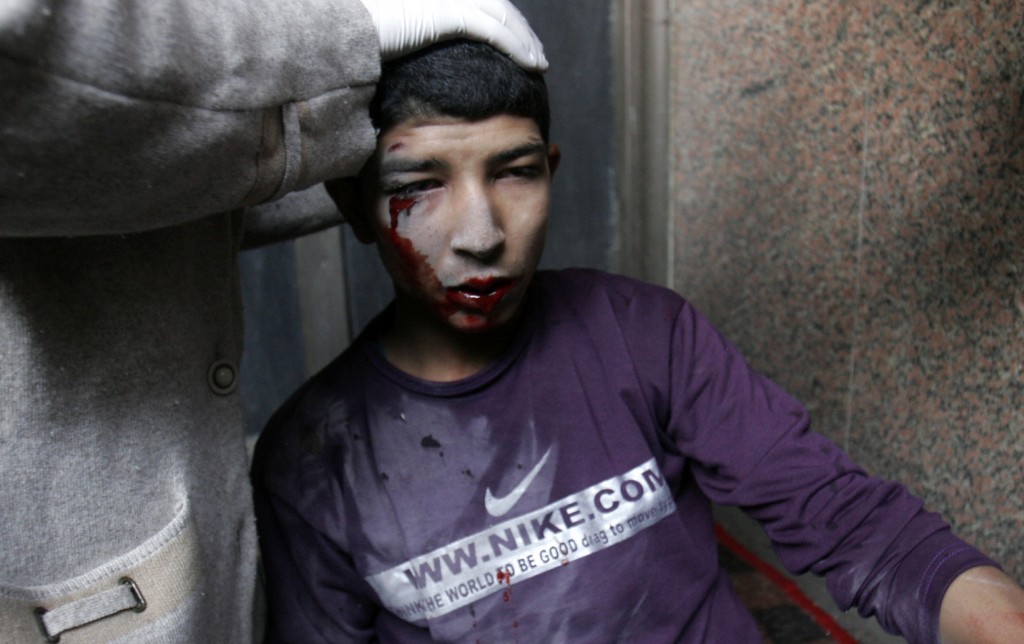
A protester injured during clashes with military police receives medical treatment near Tahrir Square, Cairo, Egypt, Friday, Dec. 16, 2011. Soldiers stormed a protest camp outside Egypt's Cabinet building, expelling demonstrators calling for an end to military rule, just as officials were counting votes Friday in the second round of Egypt's parliamentary elections. (AP Photo/Mohammed Abu Zaid)
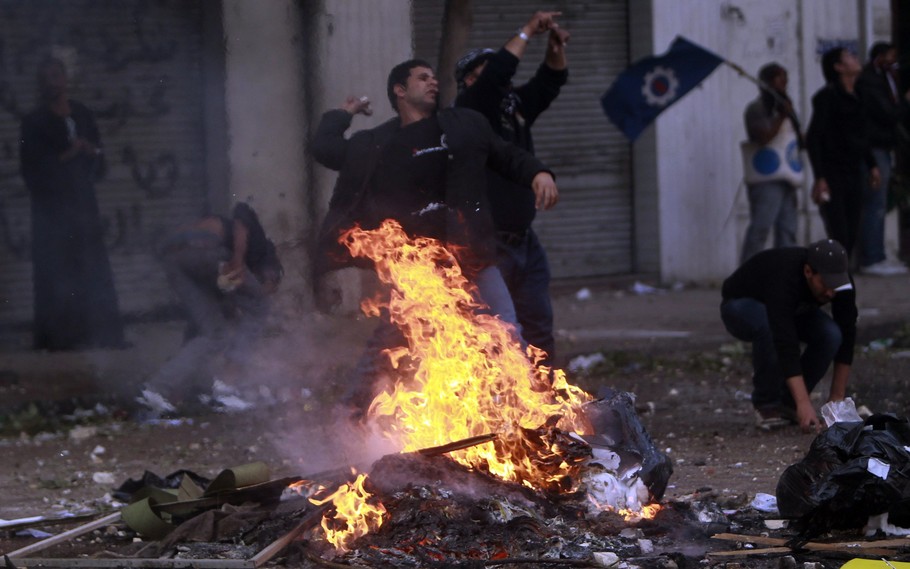
Protesters throw stones at army soldiers at the cabinet near Tahrir Square in Cairo December 16, 2011. At least two people were killed and 100 wounded in Cairo on Friday as demonstrators fought troops in the worst violence since Egypt began its first free election in six decades. In a pattern that has recurred during nine months of army rule since President Hosni Mubarak's overthrow in February, the confrontation swiftly grew as more people took to the streets. REUTERS/Amr Abdallah Dalsh
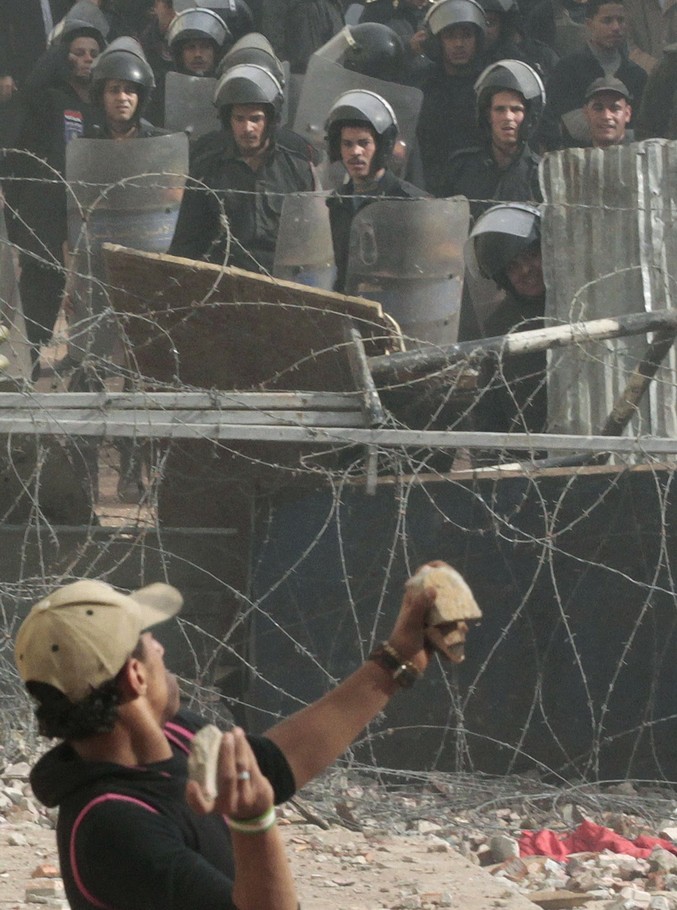
Protesters and soldiers throw stones at each other near the cabinet, in Cairo December 18, 2011. Protesters and troops fought in Cairo on Sunday, the third day of clashes that have killed 10 people and exposed rifts over the army's role as it manages Egypt's promised transition from military to civilian rule.REUTERS/MOHAMED ABD EL-GHANY
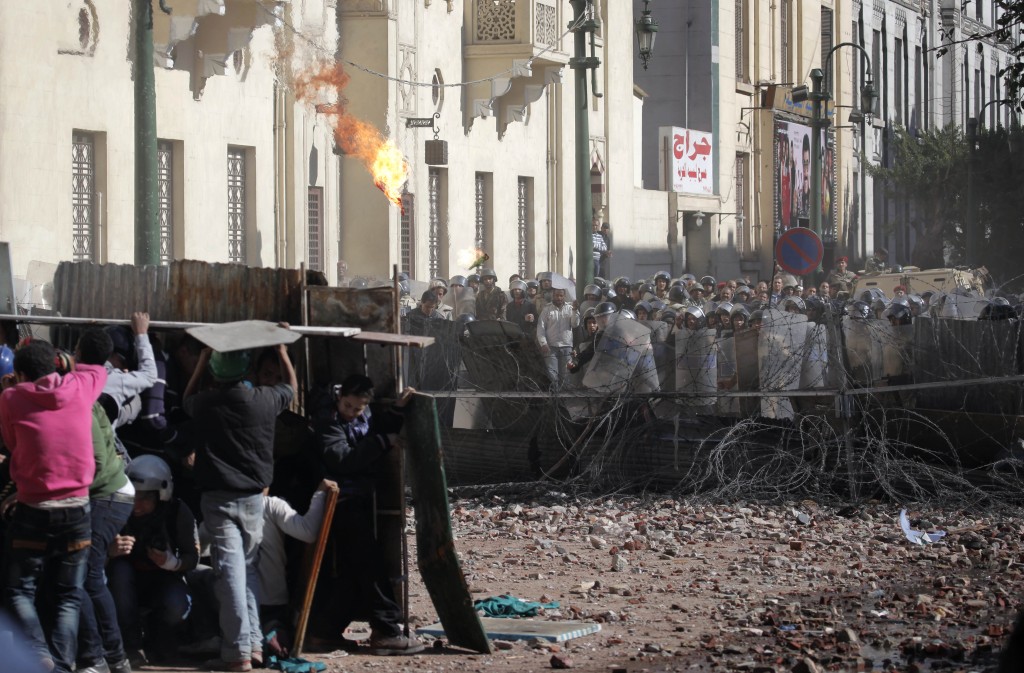
Egyptian protesters take cover while a fellow protester throws a fire bomb toward army soldiers during clashes near Tahrir Square in Cairo, Sunday, Dec. 18, 2011. Egypt's military sought to isolate pro-democracy activists protesting against their rule, depicting them as conspirators and vandals, as troops and protesters clashed for a third straight day, pelting each other with stones near parliament in the heart of the capital. (AP Photo/Nasser Nasser)
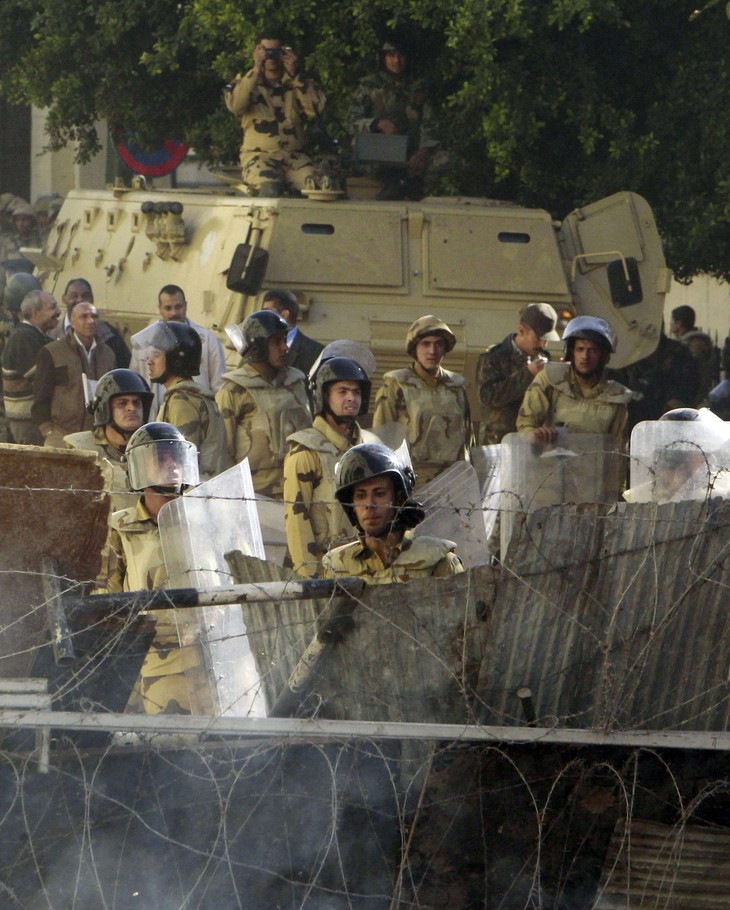
Army soldiers stand guard during clashes with protesters at cabinet offices near Tahrir Square in Cairo December 18, 2011. Protesters and troops fought in Cairo on Sunday, the third day of clashes that have killed 10 people and exposed rifts over the army's role as it manages Egypt's promised transition from military to civilian rule. REUTERS/Amr Abdallah Dalsh
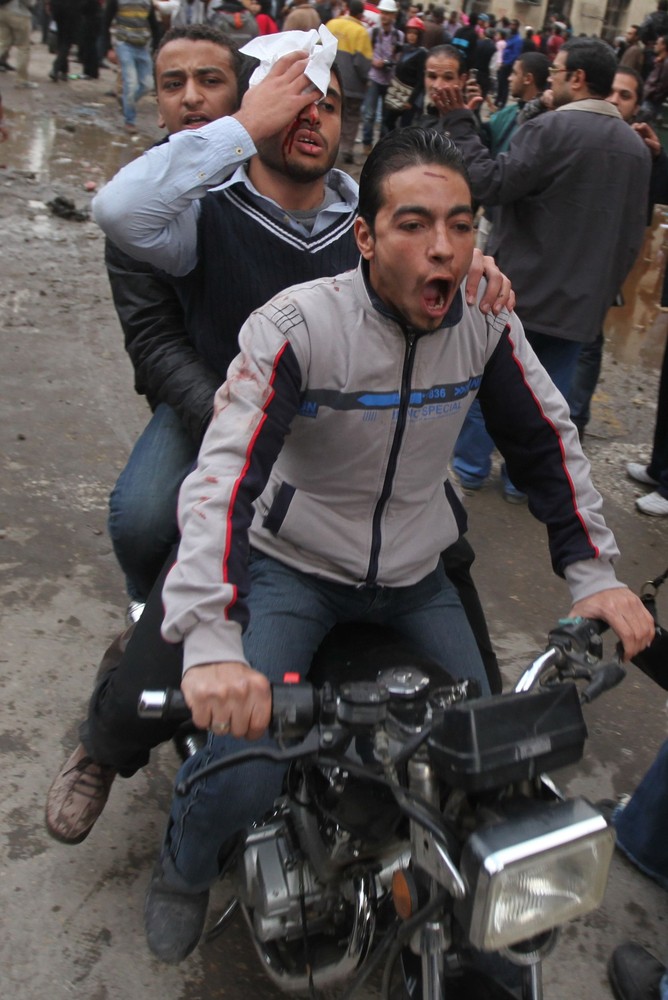
Protesters transport an injured fellow protester on a motorcycle during clashes with riot police near cabinet offices near Tahrir Square in Cairo December 18, 2011. Protesters and security forces fought in Cairo on Sunday, the third day of clashes that have killed 10 people and exposed rifts over the army's role as it manages Egypt's promised transition from military to civilian rule. REUTERS/Amr Abdallah Dalsh
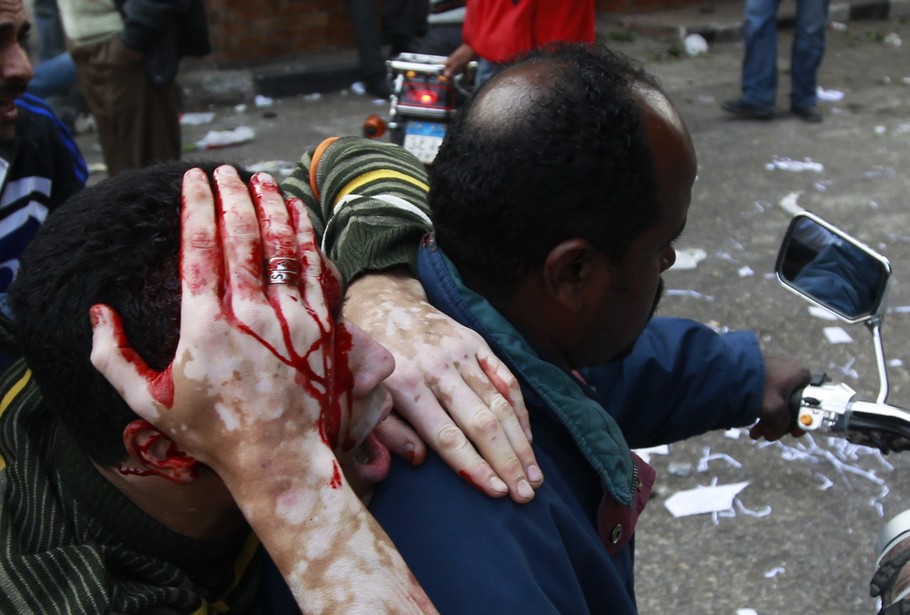
An injured protester is evacuated by a fellow protester on the back of a motorcycle during clashes with army soldiers at the cabinet near Tahrir Square in Cairo December 16, 2011. Stone-throwing demonstrators clashed with troops wielding truncheons and electric prods in central Cairo on Friday, witnesses said, in the worst violence since the start of Egypt's first free election in six decades. REUTERS/Amr Abdallah Dalsh

Egyptian anti-military demonstrators protest outside the burnt Institute of Egypt in central Cairo on December 18, 2011 as deadly clashes pitting army troops and police against protesters rocked the Egyptian capital's political centre for a third day, widening divisions over the military's handling of transition from Hosni Mubarak's rule. The heavily damaged historic centre for the advancement of scientific research, housing priceless national archives, was set was founded in 1798 during Napoleon Bonaparte's expedition to Egypt, and contained more than 20,000 precious documents and manuscripts. AFP PHOTO/MOHAMMED ABED
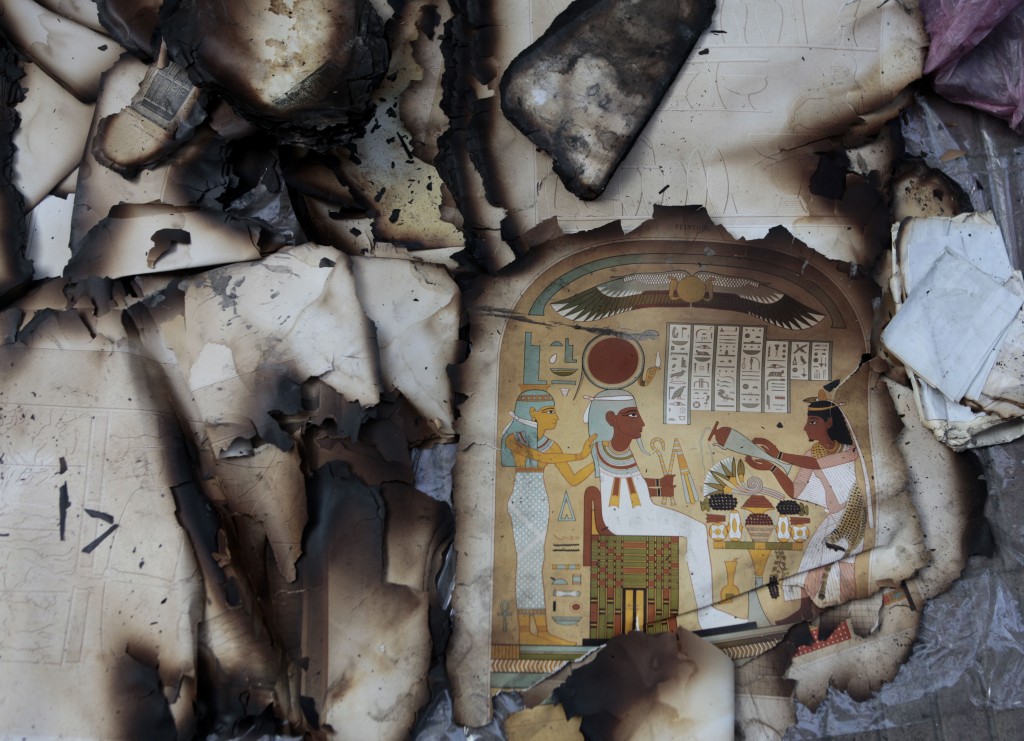
Ancient burnt and damaged books which were saved from a research center, set up during the three-year occupation of Egypt by France in the late 18th century, are seen at a restoration book center in Cairo, Egypt, Monday, Dec. 19, 2011. The research center was almost completely gutted by a fire which broke out during the height of the clashes on Saturday, when troops on its roof and on other nearby rooftops hurled rocks down on protesters below. (AP Photo/Amr Nabil)
